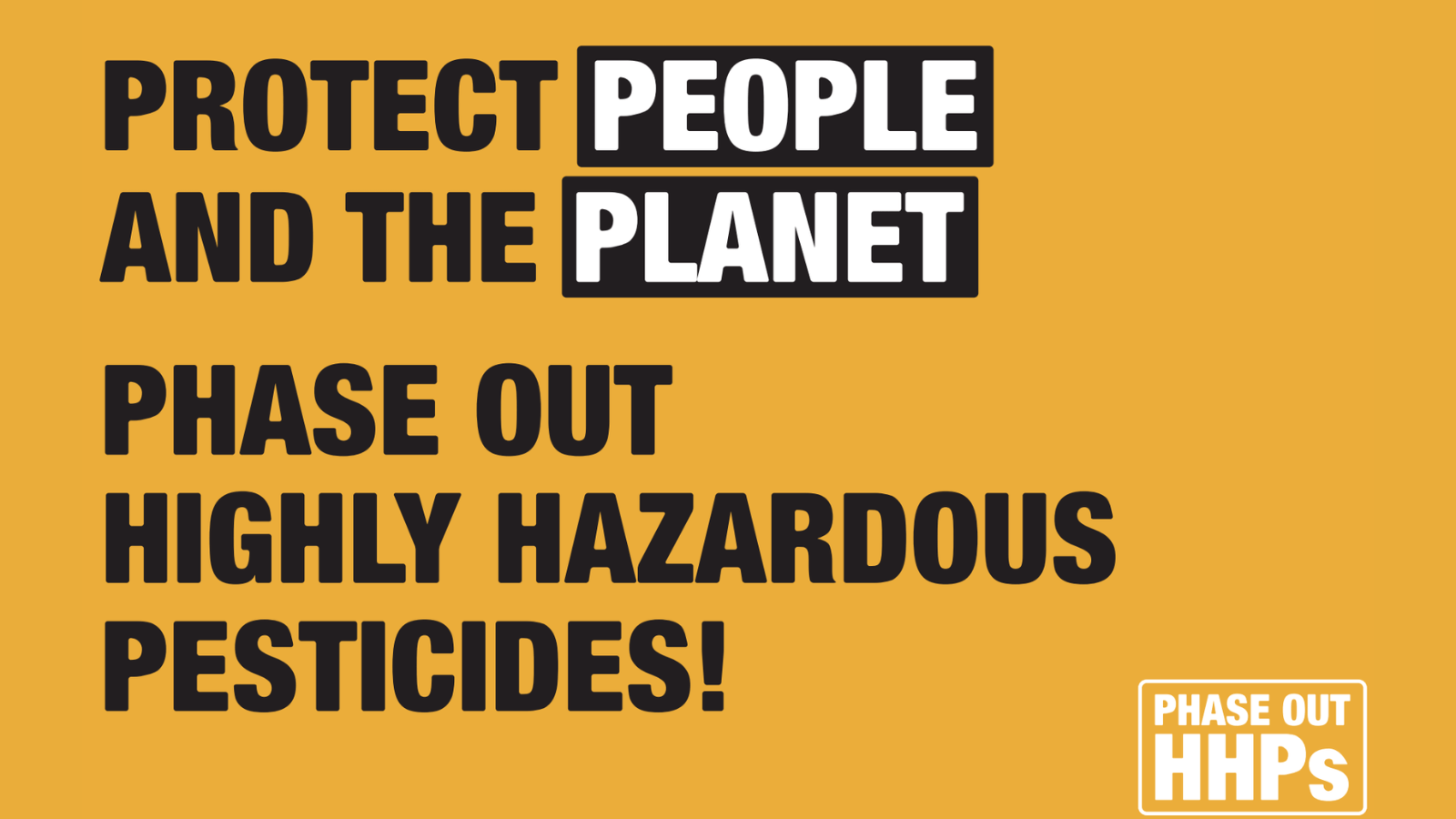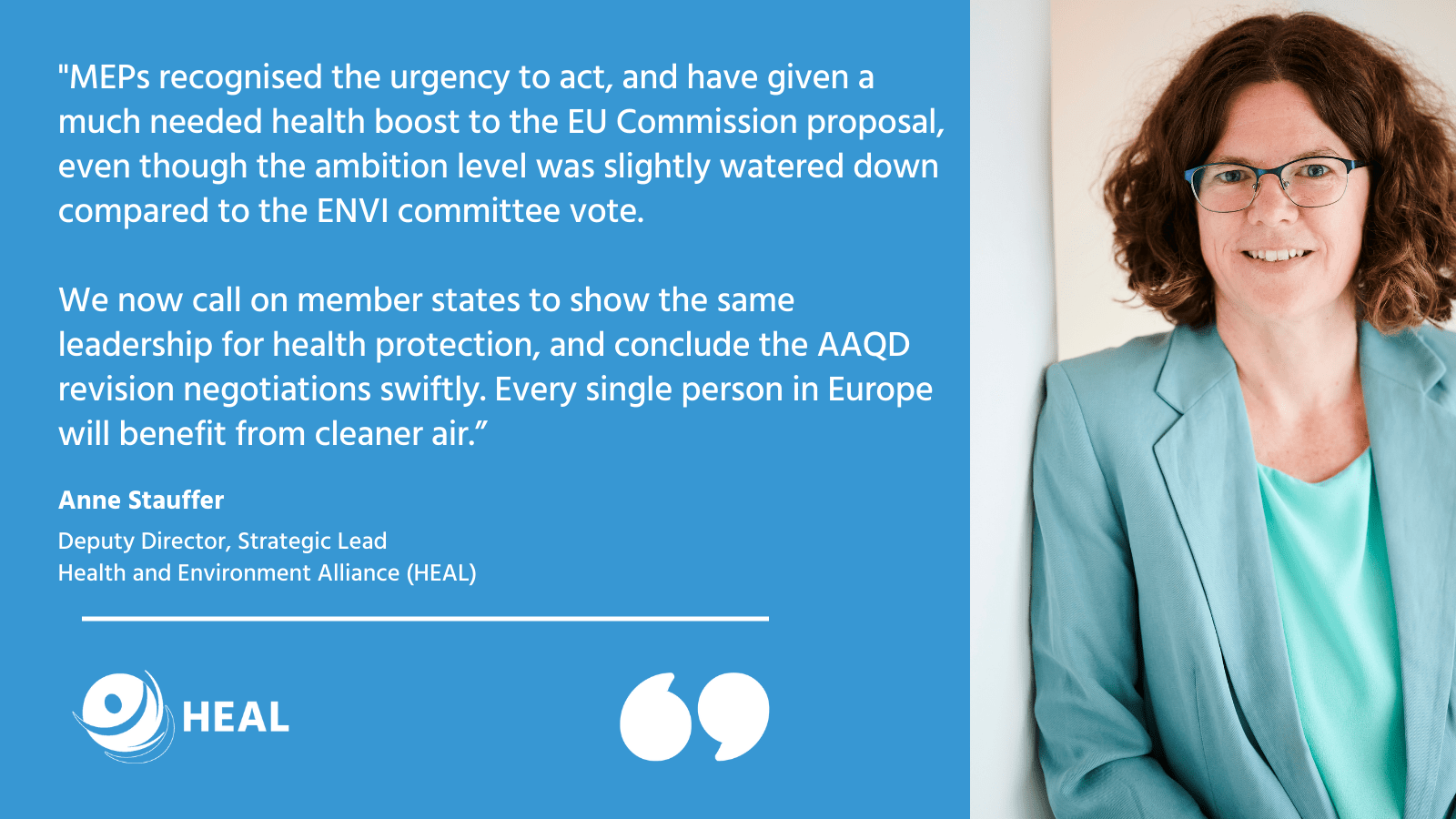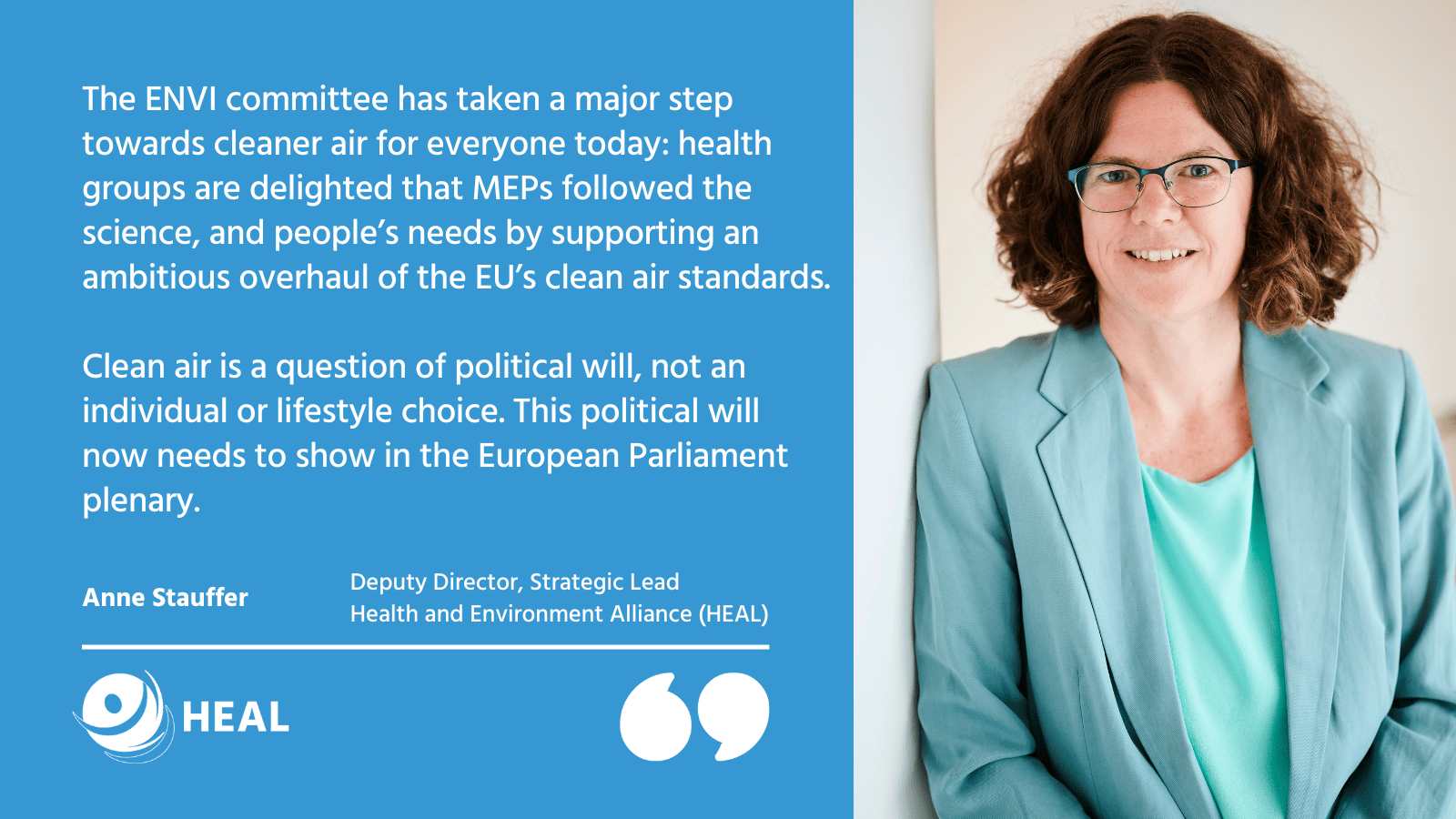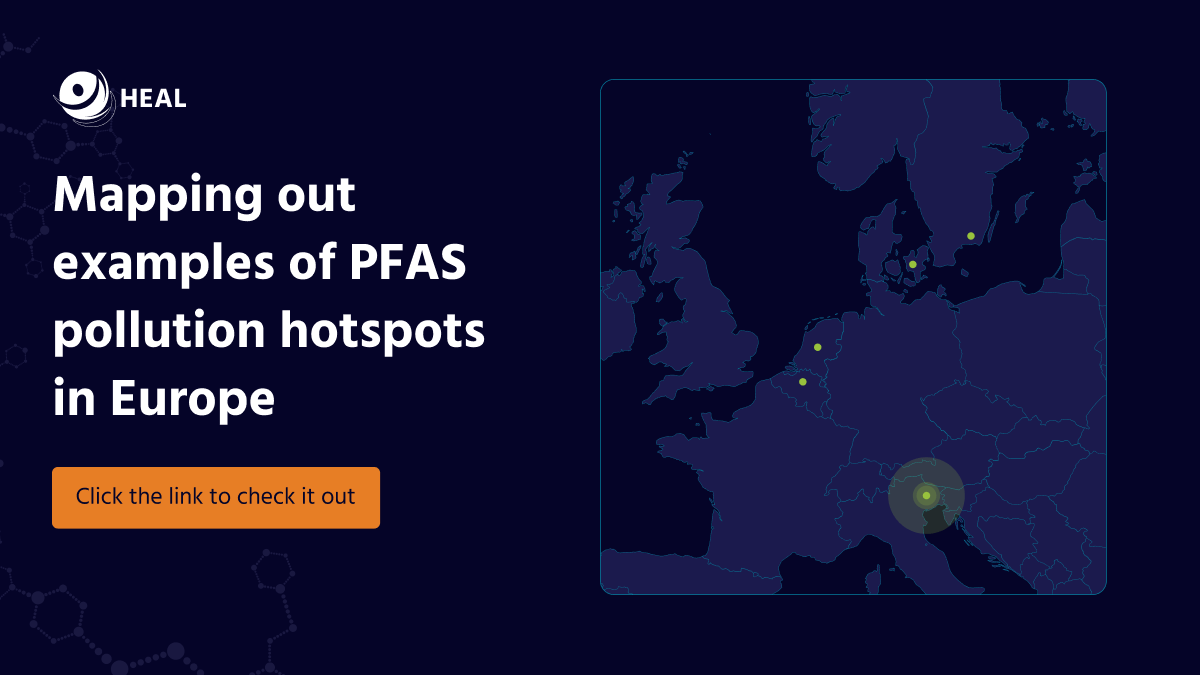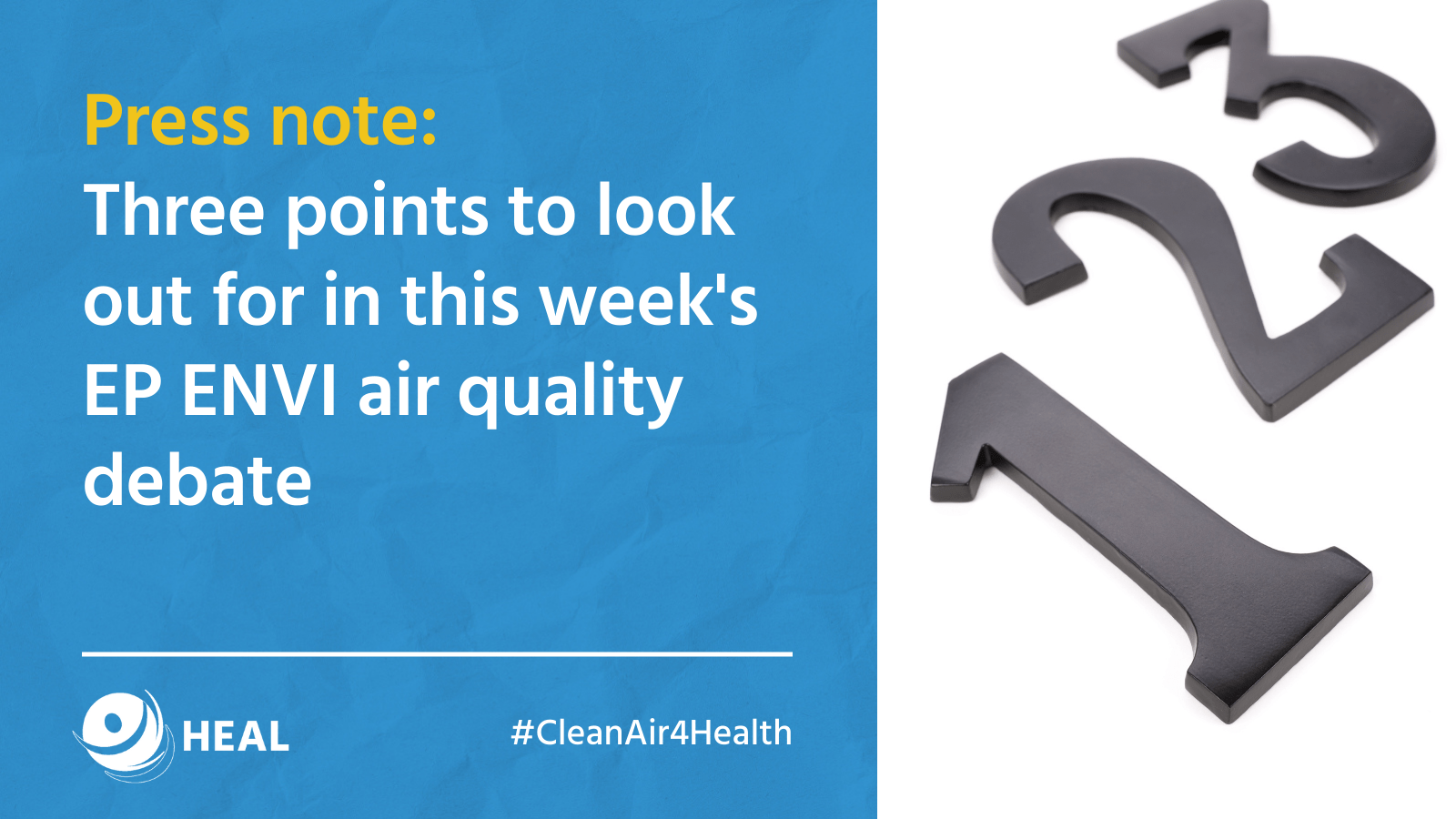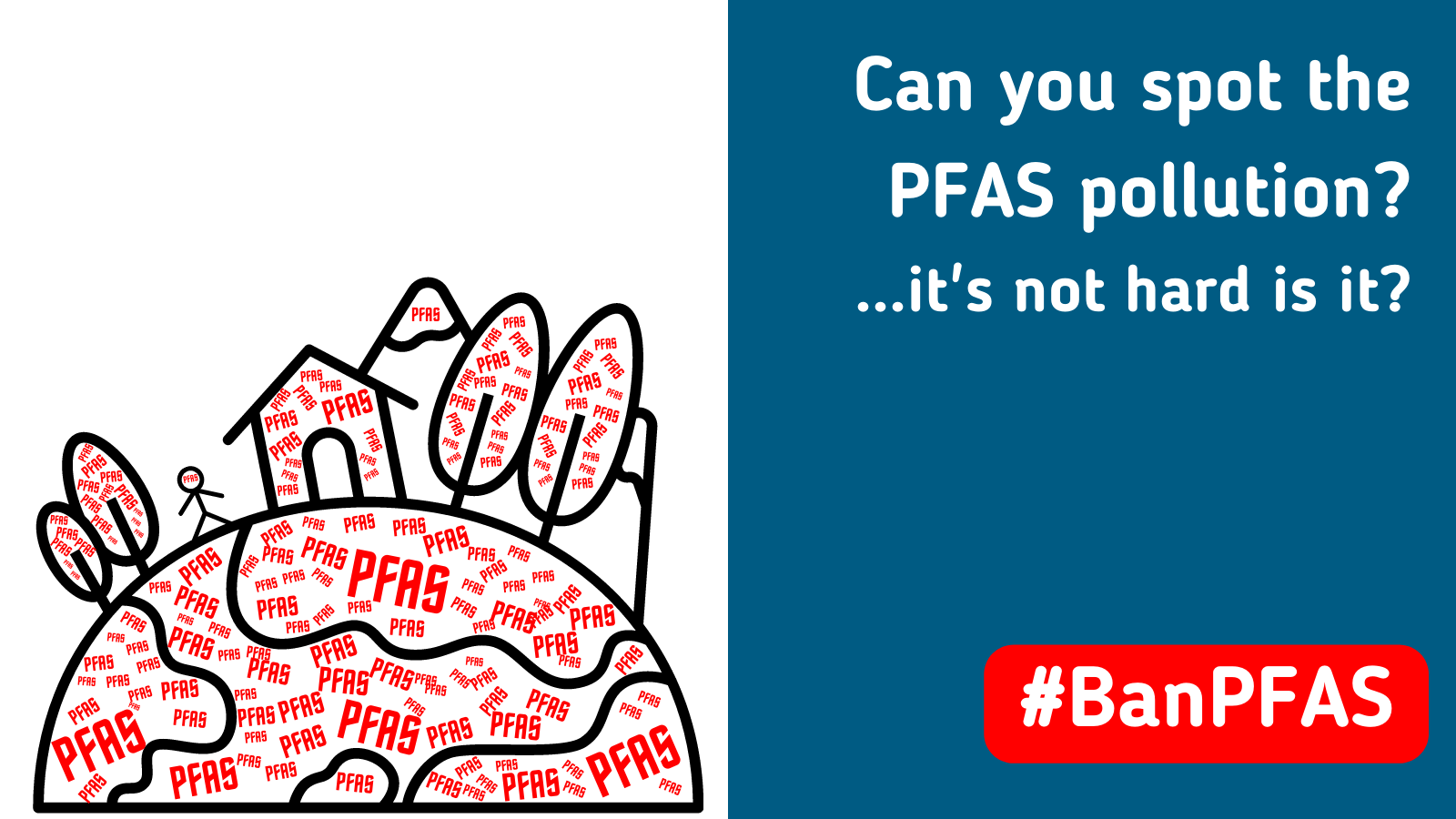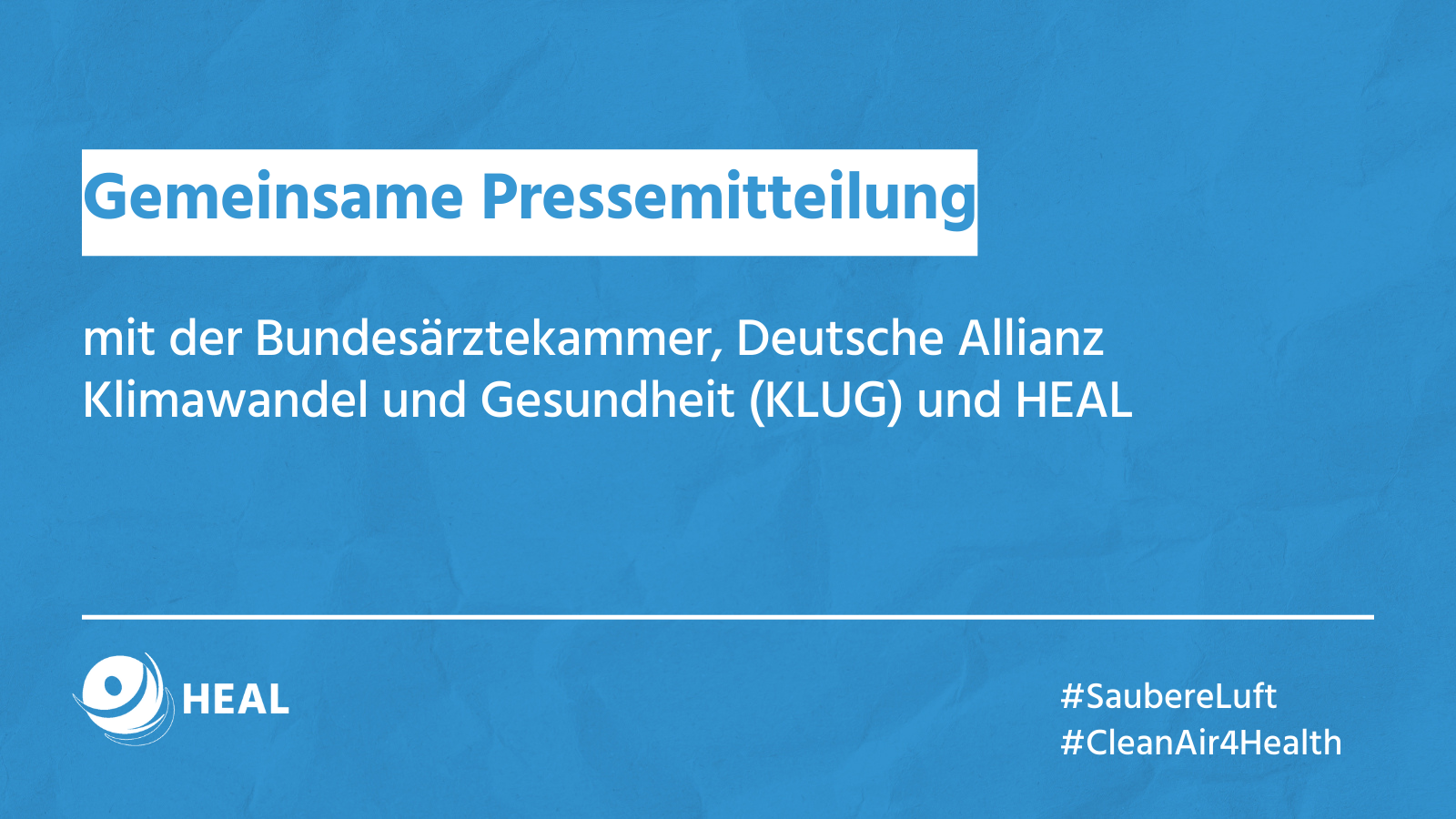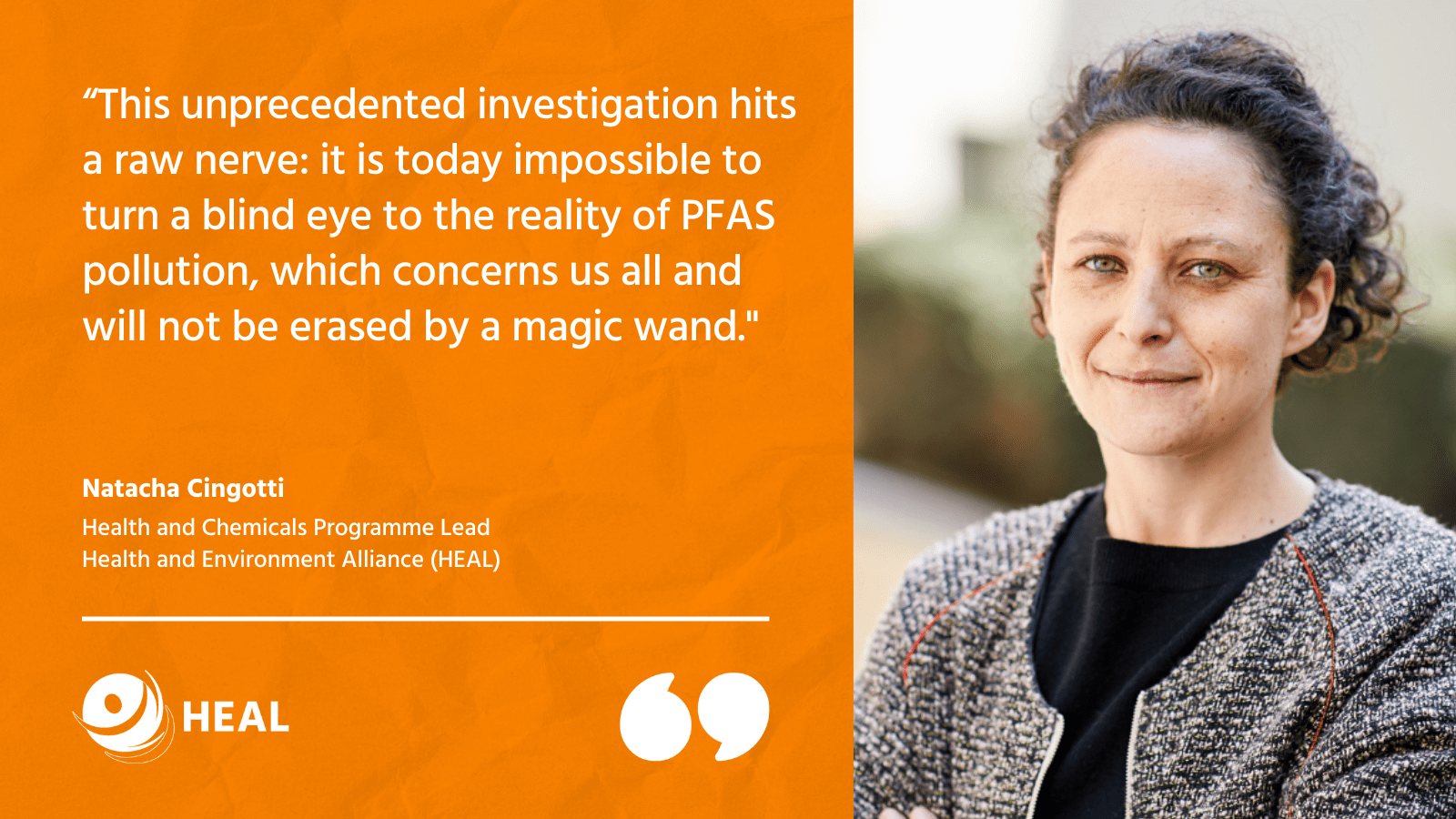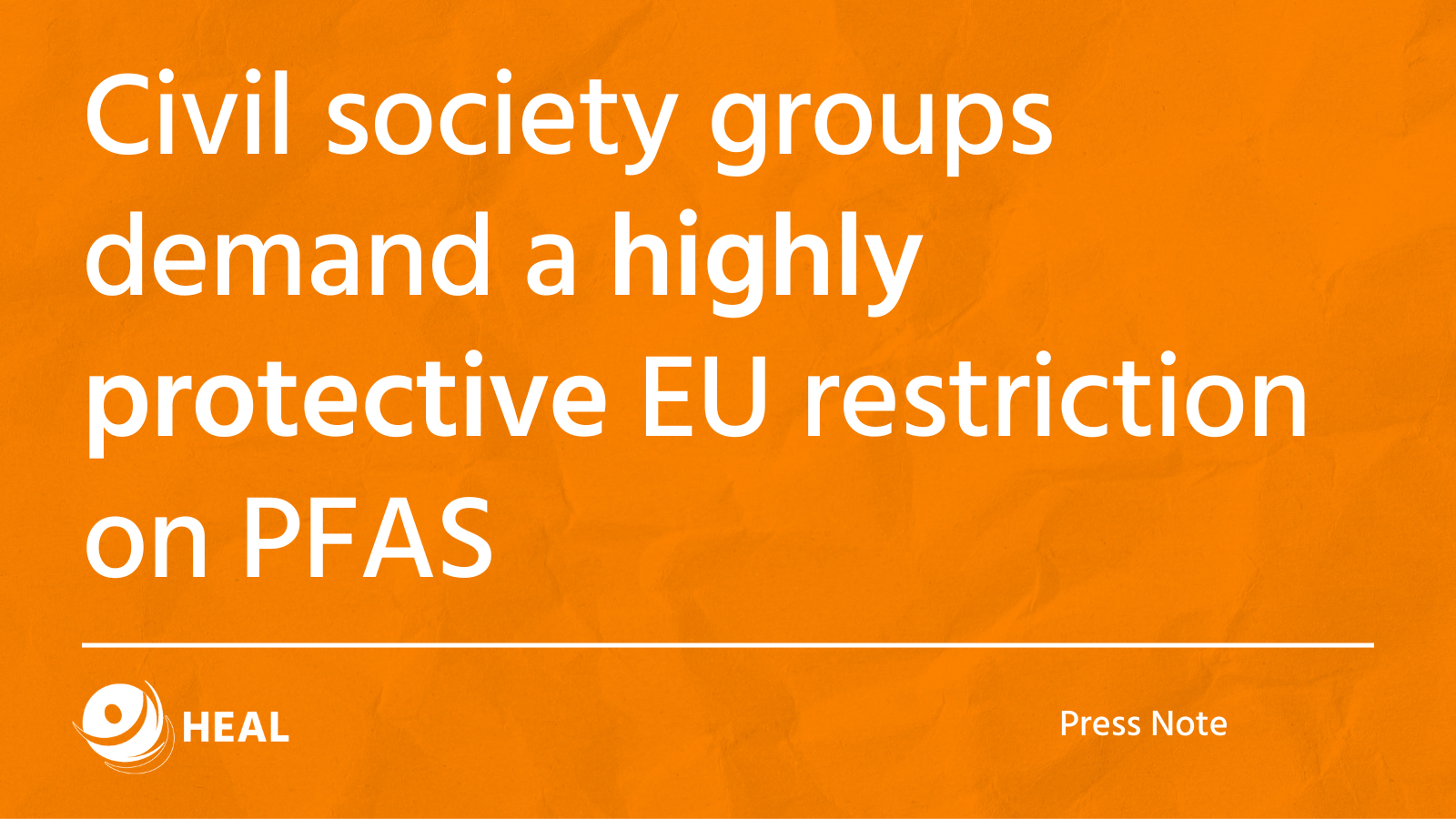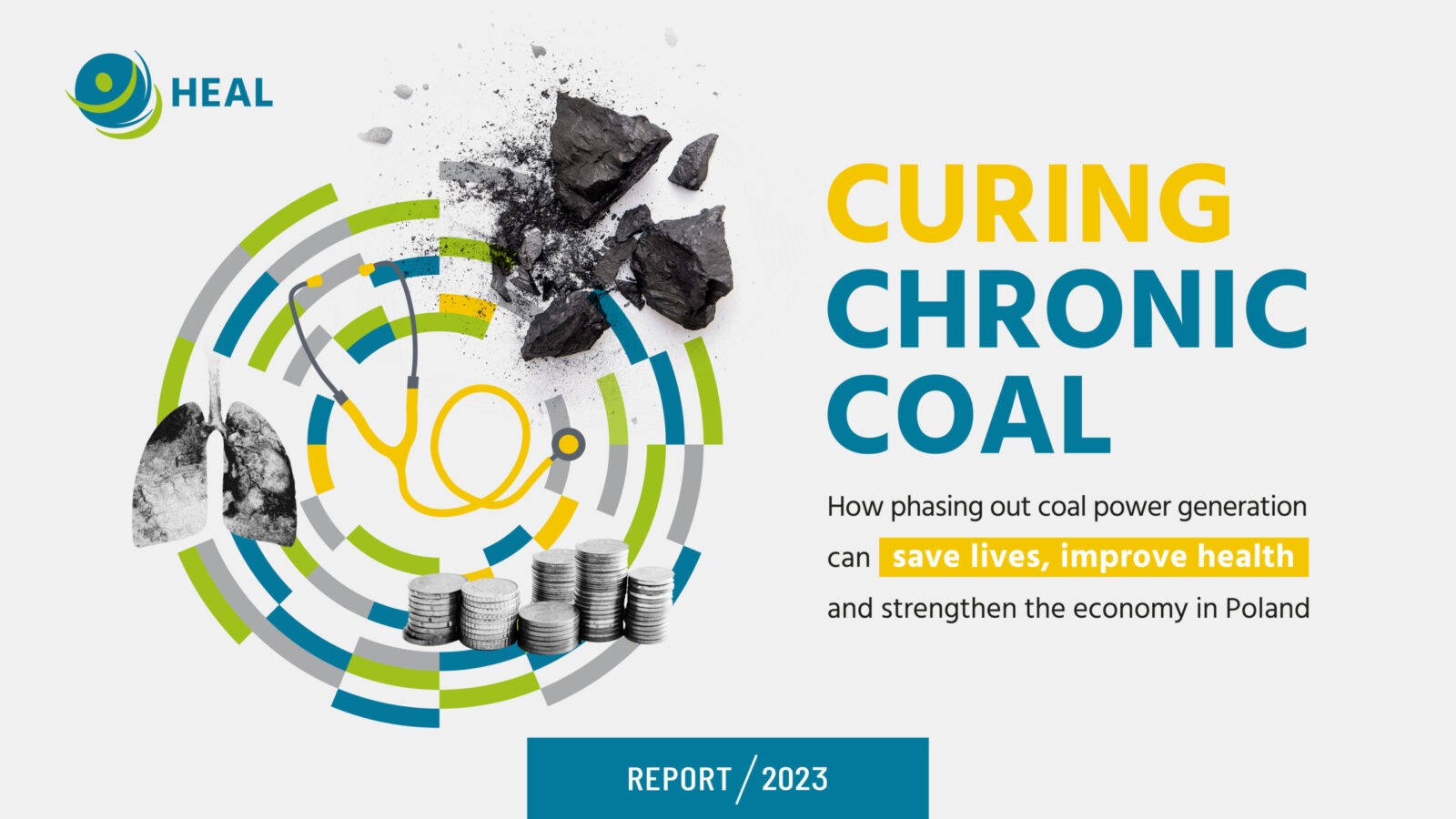Presseinformation: 8. November 2023 – EU Mitgliedstaaten vor wichtiger Entscheidung zu Luftqualität und Gesundheitsschutz
Die Abstimmung über die Verhandlungsposition der EU-Mitgliedsstaaten ist für diese Woche Mittwoch im Ausschuss der Ständigen Vertreter (COREPER) vorgesehen. Erst wenn die EU-Mitgliedsstaten ihre Verhandlungsposition festgelegt haben, können die sogenannten Trilogverhandlungen zwischen Mitgliedstaaten, Europaparlament und EU-Kommission beginnen und der Zeitplan für die Novellierung gehalten werden, damit die Revision der Richtlinie bis vor den Europawahlen abgeschlossen ist.

